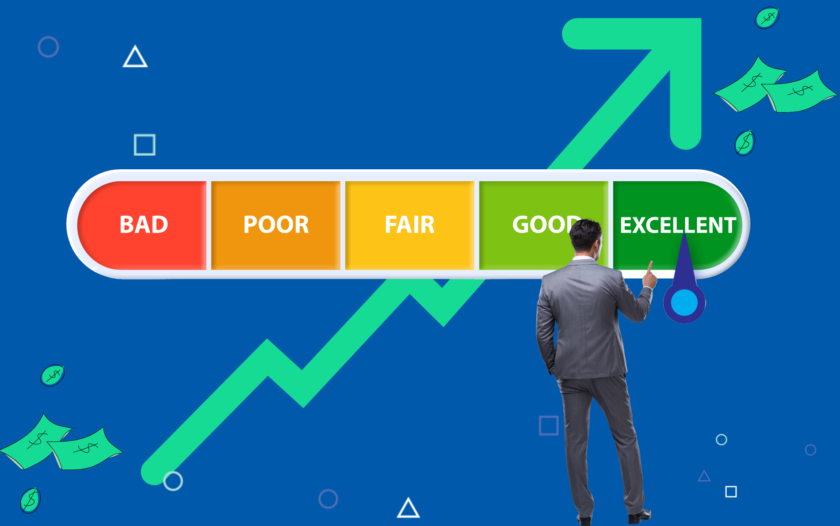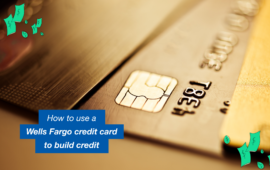How Can You Increase Your Credit Score Immediately?
About Harrison
Harrison Pierce is a writer and a digital nomad, specializing in personal finance with a focus on credit cards. He is a graduate of the University of North Carolina at Chapel Hill with a major in sociology and is currently traveling the world.
Read full bio
At a Glance
You might not be able to increase your credit score immediately, but the most effective steps you can take are to check your credit report for errors, pay off any delinquent accounts, and make consistent payments over time. Making sure that your credit report is error-free is important because, many times, creditors will report incorrect information that can lower your score. You can avoid a negative impact by checking for errors regularly and correcting them quickly. Delinquent accounts also penalize your credit score, so paying off these balances immediately can prevent further damage. Here are the top nine ways you can increase your credit score as quickly as possible.
In this article, you’ll learn:
What is a credit score?
A credit score is a numerical representation of a person’s creditworthiness based on their credit history. It is used by lenders, like banks and credit card companies, to assess the risk of lending money or extending credit to an individual. Credit scores range from 300 to 850, with higher scores indicating better creditworthiness. Factors impacting a credit score include payment history, credit utilization, length of credit history, types of credit used, and recent credit inquiries. A good credit score can help individuals secure better interest rates on loans and credit cards, while a poor credit score can result in higher interest rates and difficulty obtaining credit.
Related: Credit Score Ranges
What affects your credit score?
There are several factors that can affect your credit score, including:
- Payment history is the most significant factor that affects your credit score. Late or missed payments can have a negative impact on your score.
- Credit utilization refers to the amount of credit you are using compared to the amount available. High credit utilization can negatively impact your score.
- The length of time you have had credit accounts open can affect your score. A longer credit history can improve your score.
- Using different types of credit, like credit cards, car loans, and mortgages, can positively impact your score.
- Applying for new credit can result in a hard inquiry on your credit report, which can temporarily lower your score.
It is important to note that credit scores are complex and affected by many different factors, and different credit scoring models may weigh these factors differently.
Related: How is Your Credit Score Calculated?
Is it possible to increase your credit score instantly?
It is generally not possible to increase your credit score instantly, as building good credit takes time and consistent effort. These factors are assessed over a period of time, and it can take several months or even years to see a significant improvement in your credit score. However, there are some things you can do that can positively impact your score in a short time frame.
1. Ask for a credit limit increase
If you request a credit limit increase and your request is granted, your available credit will increase, which can lower your credit utilization ratio as long as you do not increase your spending. This, in turn, can positively impact your credit score over time.
Impact: Major impact. Credit utilization is up to 30% of your credit score, so the lower your utilization, the better your score
Time commitment: Very little time commitment. All you need to do is reach out to your credit card lender and ask for an increase. There are ways to do this without a hard inquiry, which can lower your score temporarily.
How fast it could work: Very fast. As long as you do not start spending more on your card, your score should increase as soon as the change is reported to the credit bureaus.
Related: Credit Score vs. Credit Limit
2. Get credit for rent and utility bill payments
Traditionally, rent and utility payments are not reported to credit bureaus, which means they do not directly impact your credit score. However, some companies now offer services that report your rent and utility payments to credit bureaus, which can help establish or improve your credit history.
You can use Experian Boost, which lets you link bank accounts and scans them for payments toward streaming services, phone, utilities, and eligible rent payments.
Impact: This will vary on a number of factors, like which payments you have that are eligible to be reported.
Time commitment: Once you have the service set up, you don’t have to do anything.
How fast it could work: It depends on the service and the types of payments. You might be able to get credit for the past couple years of payments, so it could potentially work very quickly. If not, it might take a bit of time to build a positive payment history.
Learn more: Do Utility Bills Build Credit?
3. Pay bills on time
Payment history is the most significant factor affecting your credit score, and making all your payments on time demonstrates responsible financial behavior.
Late or missed payments can have a negative impact on your credit score, and the longer you go without making a payment, the more severe the impact may be. Even one missed payment can lower your credit score, so making all of your payments on time is important.
Impact: High. This is the single biggest factor in determining your score.
Time commitment: If you set up autopay on each of your accounts, this virtually takes no time.
How fast it could work: If you’ve missed a number of payments recently, then starting to pay bills on time could help your score quickly.
4. Become an authorized user
Becoming an authorized user means you are tied to that account’s history. So, if the account has a long history of on-time payments and low balances, becoming an authorized user on the account could help credit score, especially if you have a limited credit history or a low credit score.
Impact: If you have limited credit history or a poor score, this could have a major impact on your score.
Time commitment: It is quick and easy to become an authorized user on someone else’s credit card. All you need to do is find someone you trust that will allow you to do so.
How fast it could work: Quickly. As soon as it is reported to the credit bureau, your score should increase.
5. Pay down credit card balances strategically
Paying down credit card balances strategically means paying off your credit card balances in a way that maximizes your credit score. One way to do this is to focus on paying down your credit cards with the highest utilization rates or balances first. You can also make multiple payments throughout the month so your balance is always low. That way, when it gets reported to the credit bureau, it seems as though your account never has a high balance.
Impact: Major impact. Paying on time and credit utilization are the two biggest factors when determining your credit score.
Time commitment: If you set up autopay or reminders to go make a payment, it’s a relatively low time commitment for the benefit.
How fast it could work: As little as the next billing cycle. Whenever your lower balance is reported to the credit bureaus, it will help.
6. Pay off collection accounts
Collection accounts can have a significant negative impact on your credit score. When you pay off a collection account, it may be updated on your credit report as paid or settled, which can help improve your credit score by reducing the negative impact of the account.
It’s also important to note that some scoring models may not differentiate between paid and unpaid collection accounts, and some lenders may still view a paid collection account as a negative factor when making lending decisions.
Impact: This will depend on several factors, like the age of the account, the amount of the debt, and your overall credit history. It’s possible that paying off a collection account may have a minimal impact on your credit score, especially if the account is older and has already caused significant damage to your credit. On the other hand, if the collector agrees to remove the account from your profile, your score could shoot up.
Time commitment: This will depend on many of the same factors and how easily you are able to pay it off.
How fast it could work: As little as a couple of months.
7. Improve your credit mix
Improving your credit mix means diversifying the types of credit accounts you have, like having a mix of credit cards, loans, and mortgages. This can help improve your credit score by demonstrating to lenders and credit bureaus that you are able to manage multiple types of credit responsibly.
Impact: If you have a limited credit history, or your credit history is solely for one type of credit, then this could have a high impact on your score.
Time commitment: It could take some time to research which option is best for you, especially if you are only getting a loan or other type of credit for the sole purpose of increasing your score.
How fast it could work: As soon as you demonstrate good financial habits with the account and that gets reported to the credit bureaus, it will start to benefit your score.
8. Dispute errors on your credit report
Disputing errors on your credit report is important because errors or inaccuracies can negatively impact your credit score and make it more difficult to obtain credit or loans in the future. It’s important to check your credit report regularly and address any errors or inaccuracies as soon as possible to maintain a healthy credit history and improve your credit score over time.
Impact: If there are fraudulent accounts or false missed payments on your report, it could have a significant impact getting them removed.
Time commitment: It will take quite a bit of time to review your report for inaccuracies, dispute them, and wait for the credit bureaus to investigate, which could take up to 30 days.
How fast it could work: If the credit bureau finds that your dispute is valid and removes the errors, you could see changes in your score as quickly as the next billing cycle.
Related: Can Disputing Credit Report Hurt Your Credit?
9. Get a secured credit card
A secured credit card can help increase your credit score by providing an opportunity to establish a positive credit history, especially if you have no or limited credit history or have a poor credit score due to past financial mistakes.
A secured credit card is a type of credit card that requires a security deposit, which is usually equal to your credit limit. The security deposit serves as collateral in case you default on your payments. Using a secured credit card responsibly, like making on-time payments and keeping your balances low, can help build a positive credit history.
Impact: If you’re brand new to credit, it could have a big impact on your score. If your score is very low, a secured credit card could also have a large impact if you are making up for previous mistakes.
Time commitment: The biggest time commitment will be picking out the credit card. The application itself will be pretty quick – then you just need to use it for a few months.
How fast it could work: This could take six months to a year to have a positive impact on your credit. You need to demonstrate your ability to make consistent monthly payments and keep your balances low in order for it to have an impact.
Confidently Take Control of Your Credit Score
Not just free credit score, but also get tools to drive tangible progress.
Not just free credit score, but also get tools to drive tangible progress.
FAQs
The speed at which you can improve your credit score varies depending on your individual circumstances, like the current state of your credit score, the types of negative information on your credit report, and the actions you take to improve your credit.
In some cases, making simple changes to your credit behavior, like making on-time payments and reducing your credit utilization ratio, can immediately improve your credit score. However, for others, it may take several months or even years to see significant improvement in their credit score.
The credit reporting agencies update credit reports and scores once a month, so any changes you make to your credit behavior may take up to 30 days to be reflected in your credit report and score.
If you have a low credit score, it will certainly be easier to improve by 100 points in one month than someone that has a 715 credit score. The biggest thing you can do to make this big of a jump is to pay off outstanding debts and keep your utilization down.
It is generally not possible to boost your credit score overnight. Improving your credit score takes time and consistent positive credit behaviors like making on-time payments, paying down debt, and keeping your credit utilization low.
It’s important to be wary of companies or services that promise to boost your credit score quickly or overnight. Some of these companies may charge high fees or engage in unethical practices that could harm your credit in the long run. Instead, focus on positive credit behaviors like making on-time payments and keeping your balances low to gradually improve your credit score over time.
The timeline for improving your credit score can vary depending on your individual circumstances, like the current state of your credit score, the types of negative information on your credit report, and the actions you take to improve your credit. In general, you can expect to see noticeable improvements in your credit score within six to 12 months of consistently practicing positive credit behaviors.
Your credit score is typically updated once a month by credit reporting agencies. This means that any changes to your credit report, like new accounts or payments, may take up to a month to be reflected in your report, but some lenders and credit monitoring services may provide more frequent updates to your credit score. Keep in mind that the exact timing of when your credit score is updated may vary depending on the reporting practices of your lenders and the credit bureaus.
A good credit score is typically considered to be a score of 670 or higher on the FICO credit scoring model, which is used by many lenders to make credit decisions. However, the definition of a good credit score can vary depending on the lender or the type of credit you are applying for.
Learn more: What Is a Good Credit Score?








